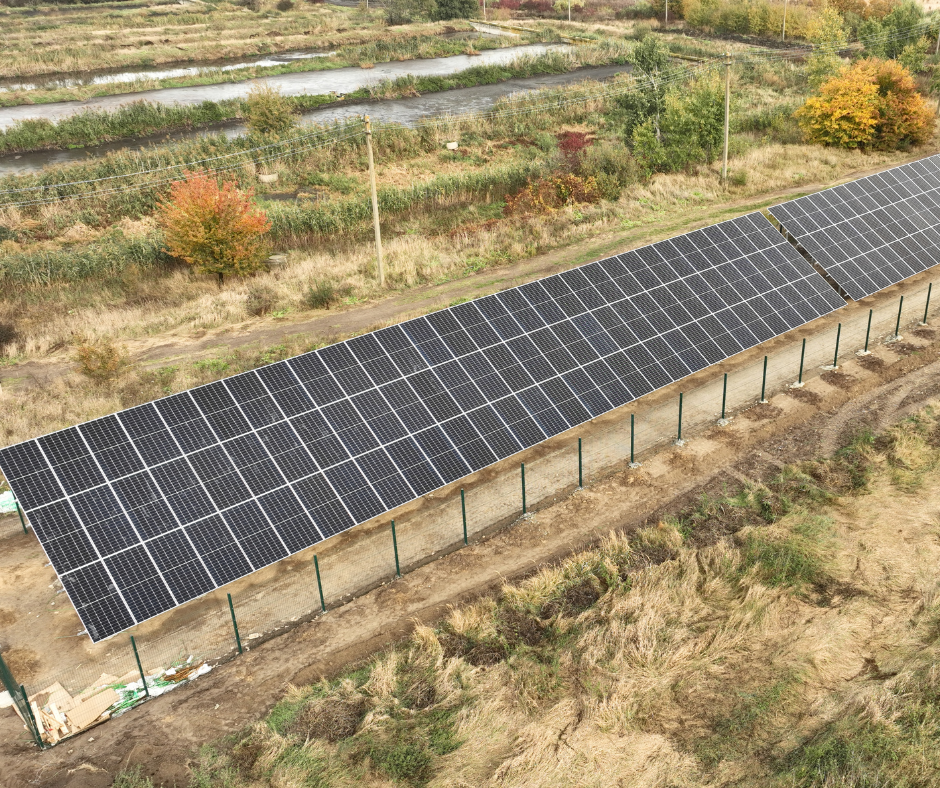Solar energy can contribute to overcoming the humanitarian crisis in Ukrainian communities. By developing decentralized sources of renewable energy, municipalities will ensure a more stable power supply to critical infrastructure such as hospitals and water utilities. Therefore, residents will continue to receive electricity and water supply services and feel safer during possible critical situations.
Lack of electricity as a threat to water utilities
Reliable and uninterrupted electricity supply is essential for the provision of basic services, including water supply. Therefore, its absence threatens the stable operation of water utilities in Ukrainian communities that receive electricity centrally from the grid. To operate more safely in critical conditions, water utilities purchase gasoline and diesel generators.
“Many communities have lost stable sources of electricity, especially those near the front line. We also remember the huge problems with water supply in communities last winter, when there were constant power outages. The risk remains, so municipalities are purchasing dozens of generators to provide backup power for utilities,” says Angus McBride, engineer.
Such equipment is expensive to maintain and purchase materials and can stop working at any time. However, the need for a stable power supply will not disappear.
Uninterrupted power supply for water utilities is needed to pump water from the source to the point of use. This requires a relatively large amount of energy, which may be in short supply as a result of hostile attacks on the power grid. Especially where the power grid is unavailable or unreliable, and fuel transportation is expensive and difficult.
Payment for electricity from the grid for equipment operation causes high operating costs, including maintenance. Electricity is also needed to run additional equipment that cleans water and for automated monitoring and control systems.
“Ukraine is experiencing a significant increase in energy prices, which is especially noticeable for water utilities. As of now, electricity bills amount to about 40% of their total expenses. Employees of many Ukrainian water utilities have told us that they are unable to cover their operating costs and invest in their water supply systems,” adds Angus McBride.
Solar power plants as a security for water utilities
The operation of solar power plants will help ensure a more stable power supply for water utilities in case of emergencies. It will allow the utility to save money on electricity bills and reduce its dependence on fossil fuels.
“Using solar energy to pump water has long-term benefits for the environment and the water sector’s finances, but it can also benefit communities by increasing the resilience of water systems,” Angus says.
The advantages of installing a solar power plant
– low maintenance costs: the equipment uses solar energy;
– sustainable solution: they are pollution-free and do not generate noise during electricity production;
– can operate for up to 25 years with high-quality equipment and maintenance;
– easily scalable.
Challenges in installing SPPs for water utilities
The most optimal period for generating electricity from solar panels is June-August. From November to March, the generated electricity will not fully meet the needs of consumers:
“From September to December, solar generation decreases due to shorter daylight hours. And since the beginning of January, the electricity generation by photovoltaic modules has been increasing,” emphasizes Olena Onishchuk, engineer of NGO Ecoclub.
“Another concern is the security factor, as we know that Russia is constantly shelling the energy infrastructure. Although it is inappropriate to install power plants near the front line, the probability of attacks on decentralized energy infrastructure is much lower than on centralized power plants,” Angus said.
Among other things, the private, public, and humanitarian sectors in Ukraine have less knowledge of solar water pumping than in other parts of the world. In particular, using solar water pumps:
“This is equipment that pumps water using solar energy. You can also install controllers and other additional equipment that adjusts the operation of the pumps to the output of solar generation. Several municipalities in Africa and Asia have experience using such equipment, where dry seasons often caused problems with water supply,” adds Angus McBide.
Future plans of communities and implemented projects
Over the next year, Ecoclub and its partners will install solar power plants in more than ten Ukrainian communities to help water utilities operate. Among them are Bohuslav, Kamianka, and Chyhyryn.
“We believe that solar energy will help Ukrainian communities become more energy independent. An example is the city of Zviahel, where four critical infrastructure facilities have been equipped with solar PV modules since the beginning of last year. In particular, the water utility. Thanks to the operation of all the installed solar power plants, the community has already saved more than 300 thousand hryvnias and continues to work towards energy independence,” emphasizes Olena Onishchuk.











